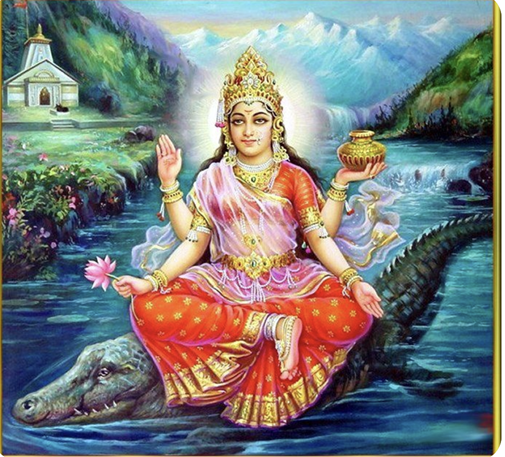If if Ain't Broke Don't Fix It, and if It IS Broke, Don't Fix It Either
/
There is something about having extra arms that just makes a god just that little bit more special, but wasn't the reason that Akhilandeshvari, the goddess of Never Not Broken came up in Tuesday night’s Psychedelic Group this week. But just in case you’ve been wondering what she looks like, here she is below:
Nice crocodile! But does the West have some equivalent to Never Not Broken? Maybe the closest we get is Saint Jude, patron saint of hopeless causes. But even here, you have the sneaking feeling that the real wish behind praying to this saint is that he will slip in a good word for you and your hopeless cause will turn out to not to so be hopeless after all. Happy ever after in Heaven.
But that is not where this goddess, or her handsome crocodile, is at. She is about broke things staying broke and being okay with that, and in group we had a fascinating conversation about it. It helped sort out for me why out-and out 'fixing ourselves' so often feels like somehow missing the point of psychedelic journeying, even though another part of my brain is saying, ‘but wasn’t that exactly the point — to fix ourselves? I won't even try to reproduce Tuesday's conversation, but here's some of what I got from it:
People talked about the idea of fixed/not fixed as an insufficient way of looking at ourselves -- as in neurodivergence, where the talents and sensitivities of one set of people is misunderstood by a second set, which calls itself the mainstream and resents and belittles people who don't look or act like it. Self acceptance is about being okay with my funny foibles, my weird moods, and what I have so far only regarded as incapacities.
Someone else brought up Kintsugi, the Japanese art of pottery repair, where the repaired item is more precious and special than before it was broken. I'm also thinking now of 'distressed' furniture and the sense of character, and history really, that goes with it. Something we may get from psychedelics is that the things we habitually stigmatize as 'broke' may in fact be gateways to new ways of seeing -- a new relationship with that ever fluid, elusive and often murky character -- ourselves.

